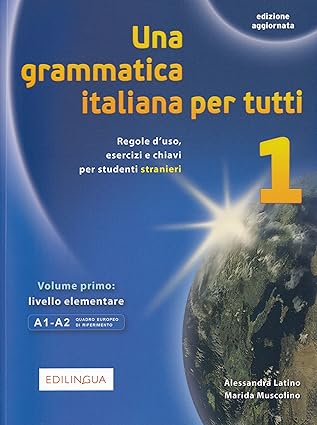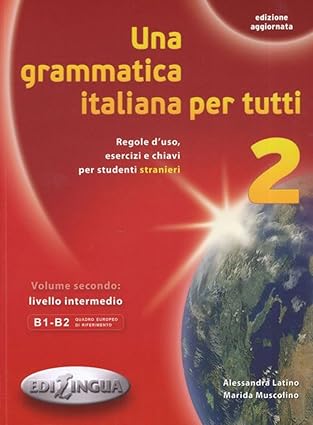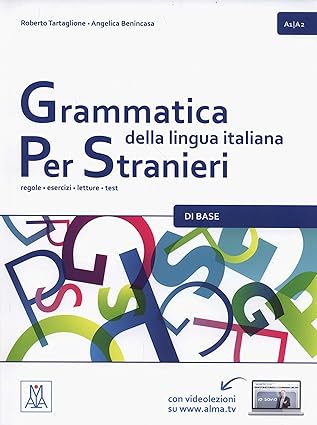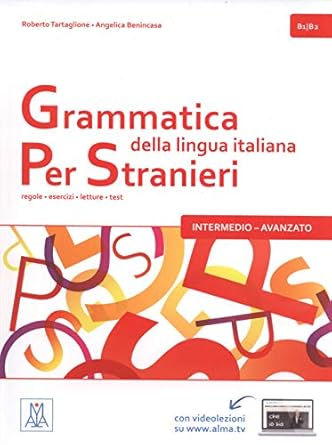The passive voice in Italian highlights what would be (the object) of a sentence.
- The passive voice in simple tenses is done with the verbs (essere) or (venire) + the past participle.
- The passive voice in compound tenses is done with the verb (essere) + the past participle.
Let us remember that in the passive voice, the complement of the agent is always preceded by the preposition (da) and that the passive form can only be made with transitive verbs.
- The complement of the agent: is the person who performs the action.
- Transitive verb: answers the question who/what?

1. Passive voice in Italian: Simple tenses
| Active voice | Passive voice |
| Lui offre la cena. Lui offrirà la cena. Lui offriva la cena. Lui offrì la cena. Lui offrirebbe la cena. ..che lui offra la cena. ..che lui offrisse la cena. | La cena è/viene offerta da lui. La cena sarà/verrà offerta da lui. La cena era/veniva offerta da lui. La cena fu/venne offerta da lui. La cena sarebbe/verrebbe offerta da lui. … che la cena sia/venga offerta da lui. … che la cena fosse/venisse offerta da lui. |
2. Passive voice in Italian: Compound tenses
| Active voice | Passive voice |
| Lui ha offerto la cena. Lui aveva offerto la cena. Lui avrà offerto la cena. Lui avrebbe offerto la cena. ..che lui abbia offerto la cena. ..che lui avesse offerto la cena. | La cena è stata offerta da lui. La cena era stata offerta da lui. La cena sarà stata offerta da lui. La cena sarebbe stata offerta da lui. …che la cena sia stata offerta da lui. …che la cena fosse stata offerta da lui. |
A). Passive voice in Italian: The indicative mood
| Tenses | Active | Passive |
| Presente (Present) | Ascolto I listen | Sono ascoltato I am listened to |
| Passato prossimo (Present perfect) | Ho ascoltato I listened to | Sono stato ascoltato I was listened to |
| Imperfetto (Imperfect) | Ascoltavo I listened | Ero ascoltato I was listened to |
| Passato romoto (Past historicol) | Ascoltai I listened | Fui ascoltato I was listened to |
| Trapassato prossimo (Past perfect) | Avevo ascoltato I had listened | Ero stato ascoltato I had been listened to |
| Trapassato remoto (historical past perfect) | Abbia ascoltato He listened | Non si usa It is not used |
| Future semplice (Future simple) | Ascolterò I will listen | Sarò ascoltato I will be listened to |
| Futuro anteriore (Future perfect) | Avrò ascoltato I will have listened | Sarò stato ascoltato I will have been listened to |
B). Passive voice in Italian: The subjunctive mood
| Tenses | Active | Passive |
| Presente (Present) | Che io ascolti | Che io sia ascoltato |
| Passato (Past) | Che io abbia ascoltato | Che io sia stato ascoltato |
| Imperfetto (Imperfect) | Che io ascoltassi | Che io fossi ascoltato |
| Trapassato (Past perfect) | Che io avessi ascoltato | Che io fossi stato ascoltato |
C). Passive voice in Italian: The conditional mood
| Tenses | Active | Passive |
| Simplice (Simple) | Ascolterei | Sarei ascoltato |
| Composto (Compound) | Avrei ascoltato | Sarei stato ascoltato |
Amazon ad:
The transformation from active to passive voice.
| Active | Passive |
| Molti lettori hanno apprezzato il Nome della Rosa. Many readers appreciated the Name of the Rose. | Il Nome della Rosa è stato apprezzato da molti lettori. The Name of the Rose has been enjoyed by many readers. |
If the subject in the active voice is indeterminate, passing to the passive voice the complement of the agent is not expressed.
- Hanno perso un mazzo di chiavi.
- They have lost a set of keys.
- È stato perso un mazzo di chiavi.
- A set of keys has been lost.
1. The questions with Chi?
| Active | Passive |
| Chi ha scritto il Nome della Rosa? Who wrote the Name of the Rose? | Da chi è stato il Nome della Rosa? From whom was the Name of the Rose? |
2. The passive with the gerund.
- La ricerca sul cancro sta facendo enormi progressi, essendo ora finanziata con nuovi fondi.
- Cancer research is making huge progress, now being funded with new funds.
3. The passive with the infinitive.
- Non piace a nessuno essere deriso.
- Nobody likes to be laughed at.
In addition to the verb essere, the passive can be formed with the verbs venire (to come) and andare (to go), but only in the simple tenses, not in the compound tenses.
4. The passive with the verb venire.
- La squadra argentina di calcio veniva indicata come la favorita del torneo.
- The Argentine soccer team was listed as the favorite of the tournament.
- La squadra argentina di calcio era indicata come la favorita del torneo.
- The Argentine soccer team was listed as the favorite of the tournament.
- L’inglese viene oggi studiato nella maggior parte dei paesi.
- English is studied in most countries today.
- L’inglese è oggi studiato nella maggior parte dei paesi.
- English is studied in most countries today.
The two forms with essere (to be) and venire are normally used with the same meaning, but the passive with venire (to come) is not possible in compound tenses.
5. The passive with the verb andare.
The passive with andare (to go) assumes in most cases the meaning of dovere (must).
- L’ultimo film di Bernardo Bertolucci va visto appena esce dicono che sia un capolavoro.
- Bernardo Bertolucci’s latest film must be seen as soon as it comes out, they say it’s a masterpiece.
- L’ultimo film di Bernardo Bertolucci deve essere visto appena esce dicono che sia un capolavoro.
- Bernardo Bertolucci’s latest film must be seen as soon as it comes out, they say it’s a masterpiece.
- Il divieto di fumare andrebbe esteso a tutti i locali pubblici.
- The ban on smoking should be extended to all public places.
- Il divieto di fumare dovrebbe essere esteso a tutti i locali pubblici.
- The ban on smoking should be extended to all public places.
In some cases andare does not express dovere.
- Nei roghi dell’Inquisizione andarono perduti libri di inestimabile valore.
- Priceless books were lost in the fires of the Inquisition.
When andare does not express dovere it can also be found in compound tenses.
- Durante la notte alcune case sono andate parzialmente distrutte a causa di un’improvvisa tromba d’aria.
- During the night some houses were partially destroyed by a sudden whirlwind.
6. The passive (si).
Instead of using the passive form with essere (to be), venire (to come), or andare (to go), it is possible to use the passive (si) + active form of the verb, but only with transitive verbs with the direct object expressed.
- A Firenze si insegna l’italiano a stranieri in molte scuole.
- In Florence, Italian is taught to foreigners in many schools.
- A Frienze l’italiano a stranieri è/viene insegnato in molte scuole.
- In Florence, Italian is taught to foreigners in many schools.
- Sull’Appenino si trovano molti funghi in autunno.
- On the Apennines, there are many mushrooms in autumn.
- Sull’Appenino vengono trovati molti funghi in autunno.
- On the Apennines, there are many mushrooms in autumn.
The passivating si requires the verb in the third person singular if the noun it refers to is singular, or the third person plural if the noun it refers to is plural. The tense of the verb is required by the meaning of the sentence.
| Singulare | Plural |
| Fino a pochi decenni fa in Italia si parlava soprattutto il dialetto. Up until a few decades ago, the dialect was mainly spoken in Italy. Fino a pochi decenni fa in Italia era parlato soprattutto il dialetto. Up until a few decades ago, the dialect was mainly spoken in Italy. | In Italia si spendono molti soldi per costruire nuove autostrada. In Italy, a lot of money is spent on building new motorways. In Italia vengono spesi molti soldi per costruire nuove autostrada. In Italy, a lot of money is spent on building new motorways. |
In compound tenses the auxiliary is always essere (to be) and the past participle agrees in gender and number with the noun it refers to.
- L’anno scorso si sono registrati tassi d’interesse in leggero calo.
- Slightly declining interest rates were recorded last year.
- Si sono viste cose interessantissime durante l’ultimo Festival di Spoleto.
- Very interesting things were seen during the last Spoleto Festival.



